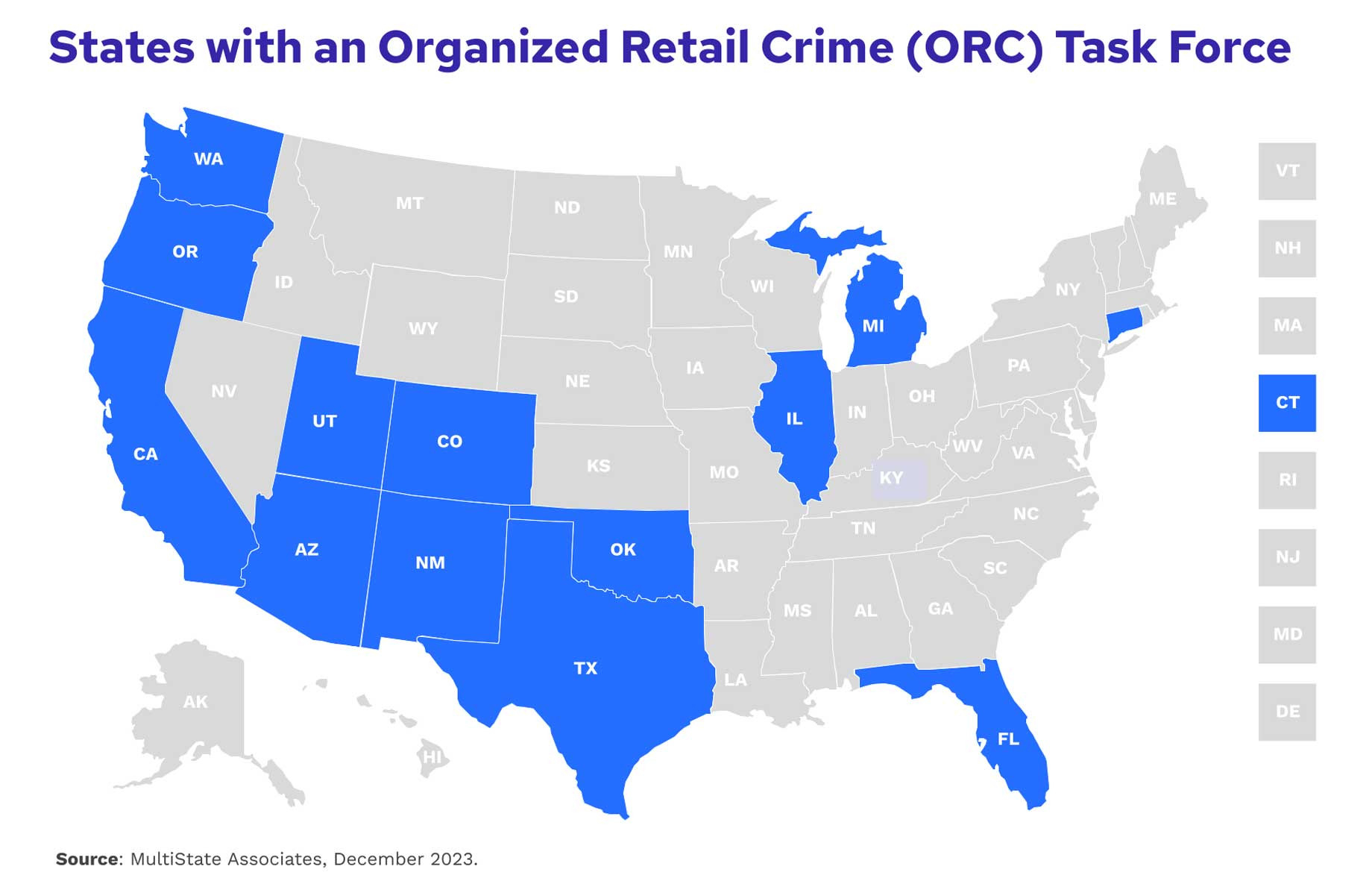The rise of organized retail crime (ORC) across the country has challenged law enforcement and retail loss prevention experts to find better ways to catch and prosecute perpetrators. One solution proven to enhance information sharing and coordination among enforcement agencies, retailers and prosecutors is through the creation of state ORC task forces.
In August, Florida’s Organized Retail Crime Exchange Task Force, or “FORCE,” brought charges against a suspect leading a multimillion-dollar retail theft operation. And in California, the highway patrol worked with members of the state ORC task force to launch a sting operation that resulted in the arrest of 51 suspects and the recovery assets worth nearly $58,000.
As of December 2023, 13 states — Arizona, California, Colorado, Connecticut, Florida, Illinois, Michigan, New Mexico, Oklahoma, Oregon, Texas, Utah and Washington — have established an ORC task force within their Attorneys General offices in order to better coordinate efforts to stop multi-jurisdictional retail crime. These task forces not only serve as a forum for stakeholders to share information but can also provide dedicated staff and resources to allow prosecutors and law enforcement agencies to handle larger caseloads. For instance, the creation of a dedicated ORC unit within Washington’s state police force originated from a recommendation by the statewide ORC task force.
State lawmakers have also introduced bills based on other recommendations made by AG task forces. Members of Oregon’s ORC task force helped draft legislation (SB 340), later enacted, that would allow theft charges that occur within 180 days to be aggregated so that individuals convicted of organized retail theft could be tried for crimes with tougher penalties.
This year, Oklahoma (SB 674) and Texas (HB 1826) became the most recent states to create a statewide ORC task force at the behest of legislators in their states. Following the signing of SB 674, Senate Pro Tem Greg Treat (R) hosted the first meeting of the Oklahoma Organized Retail Crime Task Force that included state retail leaders and representatives from the state’s two largest police departments. And in Texas, Comptroller Glenn Hegar (R) began making appointments to the state’s new ORC task force with representatives from statewide law enforcement agencies and retailers such as Amazon, eBay, H-E-B and Target.
In November, legislation to create a task force in New York (NY SB 6714 & NY AB 6568) was vetoed by Governor Kathy Hochul (D) despite calls from the business community for lawmakers to address retail theft. Hochul’s rationale was that the bill, along with numerous others, was not properly funded. In 2024 lawmakers are expected to continue pushing for comprehensive solutions to combat ORC in the state and plan to try again next session.
